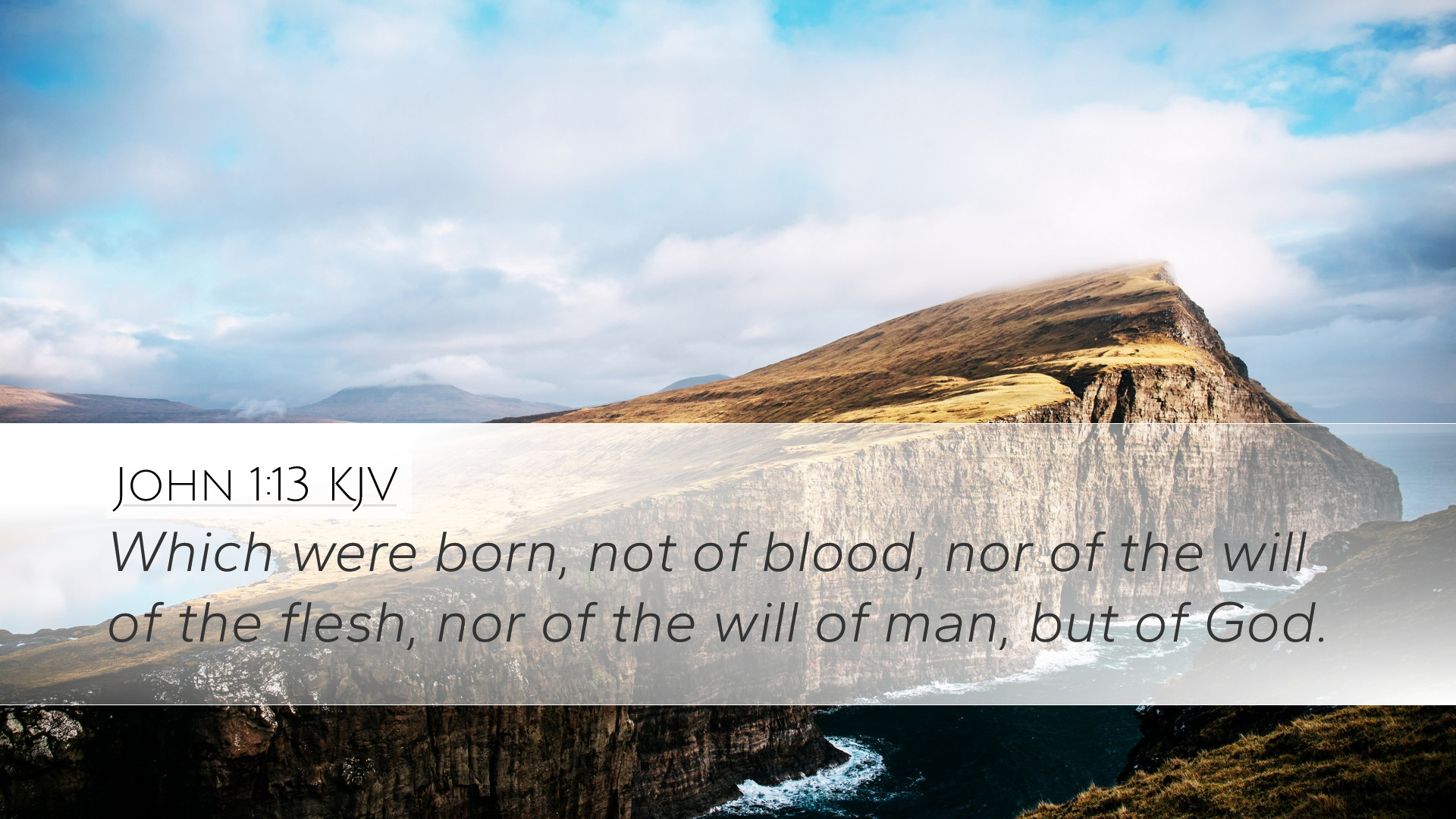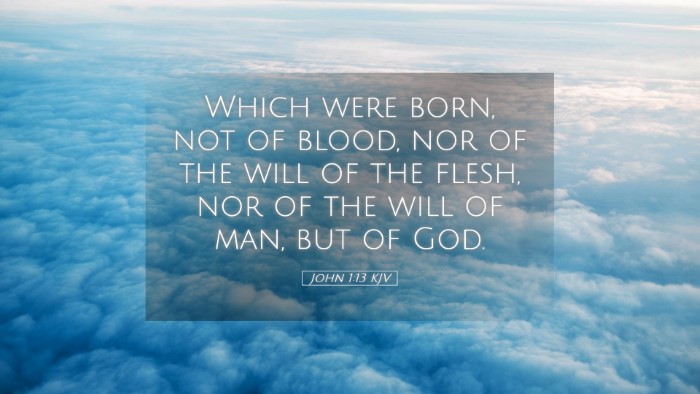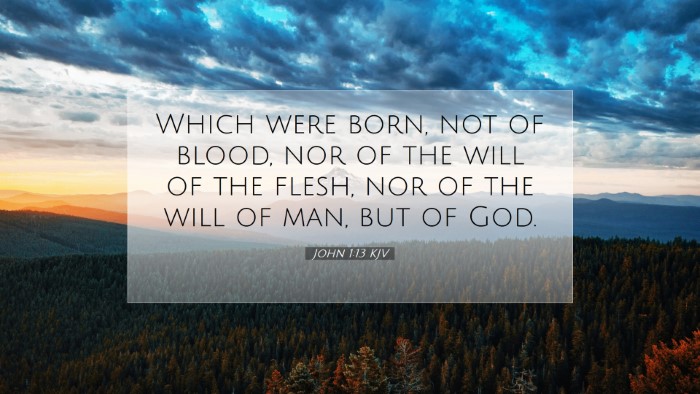Commentary on John 1:13
Introduction
John 1:13 states, “Which were born, not of blood, nor of the will of the flesh, nor of the will of man, but of God.” This verse underscores the divine origin of believers, emphasizing that true spiritual birth is not achieved through human effort or lineage but comes solely from God. In drawing insights from prominent public domain commentaries, we can explore the theological implications and critical interpretations surrounding this passage.
Birth of Believers
Matthew Henry's Commentary
Henry highlights that being "born of God" signifies a profound transformation in the life of a believer. He notes that this spiritual birth stems from God’s initiative rather than human endeavor. Henry emphasizes that this rebirth is essential for understanding one's relationship with God, as it enables individuals to live according to divine principles rather than worldly standards. The phrase illustrates the stark contrast between natural and spiritual birth, denoting that while humans can contribute to physical birth through biological means, the spiritual rebirth is entirely the domain of God.
Albert Barnes’ Notes on the Bible
Barnes provides an exegetical perspective, explaining that "not of blood" implies that one’s ancestry or heritage does not guarantee spiritual acceptance in God’s family. He addresses the implications of “nor of the will of the flesh,” asserting that mere human determination or effort is insufficient for salvation. Furthermore, Barnes interprets “nor of the will of man” as a rejection of human tradition or societal norms that dictate one's relationship with God, thereby affirming that the new birth is founded solely on divine grace and choice.
Theological Implications
Adam Clarke’s Commentary
Clarke's insights focus on the notion of regeneration, describing it as the work of the Holy Spirit, who brings about a new life in the soul. He poignantly remarks that the transformation from spiritual deadness to life is entirely dependent on God’s power. Clarke elaborates that this regenerative act is characterized by a supernatural work that transcends rational understanding. Emphasizing that it is a gift rather than a right, Clarke points to this doctrine as foundational for understanding grace and the necessity of divine intervention in the life of a believer.
Contrast of Births
The passage draws a critical distinction between natural birth and spiritual birth:
- “Not of blood” – This expression signifies that entrance into God’s kingdom is not based on lineage or heritage. The privilege of being God's children cannot be inherited like worldly titles or estates.
- “Nor of the will of the flesh” – This phrase highlights that physical desires and human instincts cannot initiate spiritual life. It underscores the inadequacy of human effort and determination in achieving salvation.
- “Nor of the will of man” – This component emphasizes that even the most sincere human intention cannot bring forth new life. It illustrates the futility of relying on one’s own will or merits.
Divine Origin of New Birth
Each part of this verse powerfully communicates that the new birth is entirely of God:
- The work of regeneration is initiated by God, who in His mercy grants spiritual birth to those He chooses.
- Understanding this divine action fosters humility among believers, as they recognize that their new life hinges not on personal achievements but on God's grace.
- This understanding encourages a reliance on the Spirit's guidance, prompting believers to live in a manner consistent with their new identity in Christ.
Applications for Believers
This verse encourages several applications in the life of a believer:
- Humility – Recognizing that spiritual birth involves no human merit fosters a spirit of gratitude and submission before God.
- Reliance on God – Believers are called to depend on God’s power for their spiritual growth and transformation.
- Evangelism – Understanding the radical divine initiative in salvation can inspire believers to share the gospel with certainty, knowing that God can regenerate even the hardest of hearts.
Conclusion
John 1:13 encapsulates a profound theological truth about the nature of salvation and spiritual birth. Drawing upon the insights of Matthew Henry, Albert Barnes, and Adam Clarke, we see the emphatic declaration of God’s sovereignty in the rebirth of believers. The implications of this verse reverberate through our understanding of grace, humility, and reliance on God's divine power, offering rich nourishment for pastors, students, theologians, and Bible scholars alike.


